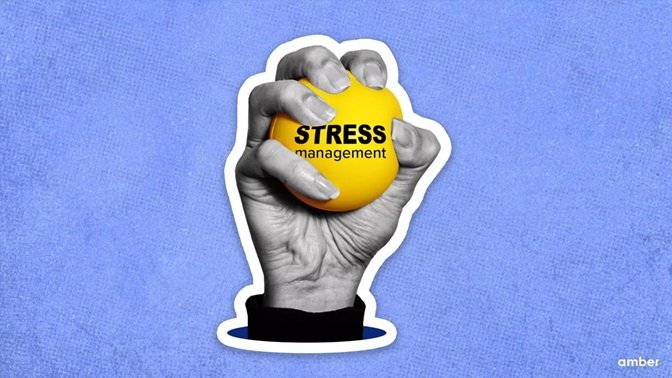
Stress Management Tips
Stress Management Tips is a common response to the challenges and demands we face daily. Whether triggered by work pressures, personal relationships, health concerns, or life changes, stress can significantly impact both mental and physical well-being if left unmanaged. While short-term stress can be motivational, chronic stress leads to exhaustion, reduced productivity, and various health issues. This guide provides a comprehensive approach to managing stress, offering practical tips, worksheets, activities, and more.
1. Effective Stress Management Tips
Implementing effective strategies for managing Stress Management Tips can greatly enhance your overall quality of life. Here are some valuable stress management tips:
Identify Your Stressors
- Reflect on situations, people, or environments that trigger your stress.
- Keep a journal to document these stressors, noting how they make you feel and how you typically react.
Practice Mindfulness
- Mindfulness involves being present in the moment, helping to reduce anxiety about future or past events.
- Simple techniques such as deep breathing, body scans, and mindful walking can help you stay grounded.
Establish Boundaries
- Setting boundaries in personal and professional settings can prevent you from becoming overwhelmed.
- Learn to say no to tasks or responsibilities that exceed your limits.
Prioritize Sleep
- Chronic lack of sleep can exacerbate stress. Aim for 7-9 hours of quality sleep each night.
- Develop a calming bedtime routine, limit screen time before bed, and create a restful sleep environment.
Stay Physically Active
- Physical exercise is a proven way to reduce stress hormones like cortisol and increase endorphins.
- Try incorporating at least 30 minutes of physical activity, such as walking, cycling, or yoga, into your daily routine.
Practice Deep Breathing Exercises
- Deep breathing techniques, like the 4-7-8 method, can help calm the mind and relax the body.
- Practice taking deep, slow breaths by inhaling for a count of four, holding for seven, and exhaling for eight.
Seek Support
- Connect with family and friends for emotional support, or consider seeking professional counseling.
- Talking about your stress can help you gain new perspectives and find better solutions.
2. Worksheets for Stress Management
Worksheets can provide a structured approach to understanding and managing stress. Here are some worksheet ideas to help you get started:
Stress Identification Worksheet
This worksheet helps you identify specific stressors, their impact on your life, and possible solutions.
- Column 1: List the stressors.
- Column 2: Describe how each stressor affects your thoughts, feelings, and behaviors.
- Column 3: Outline potential solutions or coping strategies.
Coping Skills Inventory
This worksheet encourages you to evaluate and expand your coping strategies.
- Column 1: List all current coping methods (e.g., talking to a friend, exercising, meditation).
- Column 2: Rate the effectiveness of each method on a scale from 1 to 10.
- Column 3: Identify new coping techniques to try.
Daily Stress Tracker
A daily stress tracker helps you monitor stress levels and identify patterns over time.
- Columns include:
- Stress level (1-10)
- Triggers
- How you felt physically and emotionally
- Strategies used to cope
- Outcomes (Did the strategy help?)
Self-Care Planning Worksheet
Self-care is essential for managing stress. This worksheet allows you to map out self-care activities in different areas.
- Column 1: Self-care categories (physical, emotional, social, mental, spiritual).
- Column 2: List activities for each category.
- Column 3: Set achievable goals, such as “Exercise three times a week” or “Journal for 10 minutes daily.”
Positive Affirmations Worksheet
Positive affirmations can help change negative thought patterns.
- Write down specific stress-related negative thoughts (e.g., “I can’t handle this“).
- Create a positive affirmation to counteract each one (e.g., “I am capable of overcoming challenges”).
- Repeat these affirmations daily.
3. Activities for Reducing Stress
Engaging in activities that divert your focus, relax your mind, and release physical tension can help manage stress. Here are some suggested activities:
Physical Activities
- Yoga: Promotes relaxation and improves flexibility, strength, and focus.
- Walking: Helps you disconnect from stressors, especially when done in nature.
- Dancing: Releases endorphins, promotes joy, and provides a cardiovascular workout.
Creative Outlets
- Art Therapy: Drawing, painting, or coloring helps to express emotions and relieve stress.
- Music Therapy: Listening to music or playing an instrument can soothe the mind.
- Writing or Journaling: Allows you to release emotions, organize thoughts, and gain perspective.
Meditation and Relaxation Techniques
- Guided Meditation: Listening to calming, guided instructions to help focus the mind and reduce anxiety.
- Progressive Muscle Relaxation (PMR): Involves tensing and relaxing each muscle group to release tension.
- Visualization: Imagining a peaceful setting to help calm the mind.
Social and Supportive Activities
- Volunteering: Engaging in community service can increase feelings of purpose and connection.
- Socializing with Friends and Family: Helps release oxytocin, reducing stress hormones.
- Support Groups: Being part of a support group allows you to share experiences and gain support from others.
4. Additional Resources for Stress Management
Using additional resources can support long-term stress management. Here are a few valuable resources:
Books on Stress Management
- The Relaxation and Stress Reduction Workbook by Martha Davis, Elizabeth Robbins Eshelman, and Matthew McKay offers a comprehensive guide on stress management techniques.
- Wherever You Go, There You Are by Jon Kabat-Zinn introduces mindfulness-based stress reduction.
Apps for Stress Relief
- Headspace and Calm: Both offer guided meditations, sleep aids, and relaxation exercises.
- Breathe2Relax: Provides breathing exercises to reduce stress.
- Pacifica: A cognitive-behavioral therapy-based app that tracks mood and offers coping tools.
Online Courses
- Mindfulness-Based Stress Reduction (MBSR): Offers an 8-week structured program developed by Jon Kabat-Zinn.
- Positive Psychology’s Stress Management Training: Focuses on resilience, positive psychology, and managing stress effectively.
Counseling and Therapy
- Cognitive Behavioral Therapy (CBT): This evidence-based approach helps you challenge and change stress-inducing thought patterns.
- Mindfulness-Based Therapy: Integrates mindfulness practices to reduce stress and anxiety.
- Group Therapy: Allows you to gain support from others facing similar stressors.
5. Creating a Stress Management Plan
Developing a personalized stress management plan can help you systematically address stress and build resilience over time. Follow these steps:
Step 1: Identify Stress Triggers and Responses
List your common stress triggers, and note how you typically react. This awareness is the first step in understanding what you need to change.
Step 2: Set Goals
Set clear, achievable goals for managing stress. For instance, “I will practice deep breathing when I feel anxious at work.”
Step 3: Choose Techniques
Choose 2-3 stress management techniques to start. Consider combining physical activity with relaxation exercises or creative outlets.
Step 4: Create a Routine
Incorporate stress management activities into your daily routine. Consistency is essential for building long-term habits that promote stress resilience.
Step 5: Track Progress
Use a stress management worksheet to track how each technique affects your stress levels. Make adjustments as needed.6. Practical Stress Management Tips for Specific Situations
Work-Related Stress
- Prioritize Tasks: Break tasks into smaller, manageable steps and prioritize them.
- Take Breaks: Step away from your desk regularly to recharge.
- Avoid Multitasking: Focusing on one task at a time improves efficiency and reduces overwhelm.
Relationship Stress
- Communicate Clearly: Practice active listening and express your needs calmly.
- Establish Boundaries: Ensure you have personal time for self-care.
- Seek Counseling if Needed: Couple or family counseling can offer tools for healthier relationships.
Health-Related Stress
- Educate Yourself: Understanding your health condition can alleviate fears.
- Focus on What You Can Control: Instead of worrying about unknowns, concentrate on actions within your control, like diet, exercise, and rest.
- Join Support Groups: Connecting with others facing similar challenges can provide emotional support.
Conclusion
Stress Management Tips is an essential skill for maintaining mental and physical well-being. With the right strategies, worksheets, activities, and support, you can reduce stress and lead a more balanced life. Remember that building resilience to stress takes time, so start with small, manageable changes and gradually incorporate new techniques as you grow more comfortable with them.






